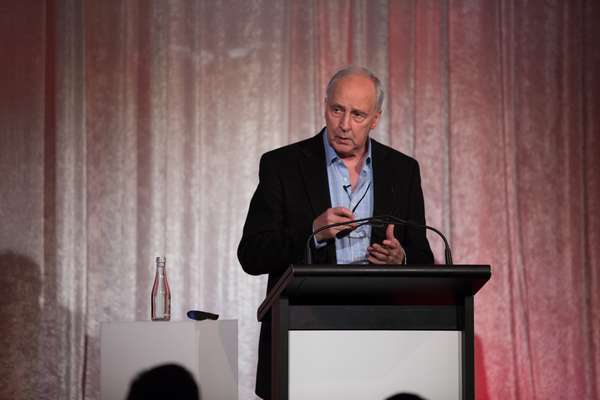
Last July marked an important milestone in Australia’s financial history.
The superannuation guarantee system, introduced 33 years ago, finally reached its long-planned target of 12% of wages. From here on, no further increases are scheduled.
When I was in Sydney recently, I caught up with my long-time friend Paul Keating to celebrate.
Our conversation naturally turned to Treasurer Chalmers’ proposal to tax unrealised capital gains, but since we’ve both opposed it from the outset, there wasn’t much to debate.
Instead, Paul reflected on what he set out to achieve all those years ago.
‘I wanted an Australia where every worker would have money put away for their retirement, professionally managed so they could benefit from compound interest, and protected until they reached preservation age,’ he said.
It’s a simple idea, but its impact has been profound.
In the early 1990s, compulsory employer contributions started at just 3%. Over time, they were gradually increased, with the final step to a 12% contribution reached only last year. The journey wasn’t smooth: there were several attempts to stall it, and at one point, strong lobbying pressure mounted to freeze the guarantee at 9%.
But the government persisted, and millions of Australians have had their lives changed by that persistence.
The reform has become one of modern Australia's most significant public policy achievements—quietly accumulating wealth for ordinary workers in the background, year after year, without them having to lift a finger.
I told Paul about an email I’d received only the day before from a 65-year-old woman: ‘I have no home, and my only asset is $250,000 in super. How will I cope in retirement?’
I explained that at 67, she would be eligible for an indexed age pension of about $30,000 a year for life, and could also draw around $18,000 annually from her super, enough to last until at least age 90.
Her reply was short but heartfelt: ‘Thank you. You’ve put my mind at rest.’
Paul then produced a large box of cards and letters of thanks he’s received over the years.
Many came from people who, without superannuation, would have faced retirement with little more than the pension and perhaps the family home. For them, super has meant choices, dignity, and independence—three things that can make all the difference in later life.

Critics of Australia’s superannuation have always argued that workers would be better off taking the money now rather than locking it away, but Paul and I have never agreed with that proposition.
People adapt their spending to what they take home. They don’t miss the 12% any more than they miss the tax withheld from their wages, but they certainly notice the difference when they retire.
Here’s why: take a 25-year-old earning $50,000 a year. Their employer’s super contribution is $6,000 annually.
If paid as wages, they’d lose 30% in tax and take home $4,200. Without super, they’d most likely reach retirement with little more than the family home—if they could afford one—and be dependent on the age pension. But with the super guarantee, assuming wages grow 3% a year and returns average 8%, they could retire in 40 years with around $2.5 million in super, tax-free.
Of course, $2.5 million in 40 years won’t have the same buying power as today—but even in today’s dollars, it’s equivalent to well over $800,000. That’s the difference between scraping by and enjoying genuine financial security. And because contributions happen automatically through payroll, the discipline is built into the system—it works for everyone, not just those with the foresight to save.
Noel shared some thoughts about superannuation in this July 2024 podcast interview. Video Credit: YouTube / The Property Couch Podcast
When you think about it, very few people can go to their graves knowing the initiatives they personally promoted and fought for have improved the lives of millions.
Paul Keating is one of them. His superannuation guarantee has not only reshaped Australia’s retirement landscape but has also given countless people peace of mind that they will not face the last years of their life in poverty.
It’s worth remembering that superannuation is more than an economic policy: it’s a social contract. It asks people to forgo a small part of their present income for the sake of their future. It relies on trust—trust that the system will be maintained and managed responsibly over decades.
Thanks to leaders who stayed the course despite political resistance, that trust has been rewarded.
The result is a retirement system envied around the world and a future far brighter for millions of Australians.
About the author:
Noel Whittaker, AM, is the author of Wills, death & taxes made simple and numerous other books on personal finance. An international bestselling author, finance and investment expert, radio broadcaster, newspaper columnist and public speaker, Noel Whittaker is one of the world’s foremost authorities on personal finance. Connect via Twitter or email ([email protected]). You can shop his personal finance books here.
Advice given in this article is general in nature and is not intended to influence readers’ decisions about investing or financial products. Always seek professional advice that takes into account your personal circumstances before making any financial decisions. The views expressed in this publication are those of the author.







